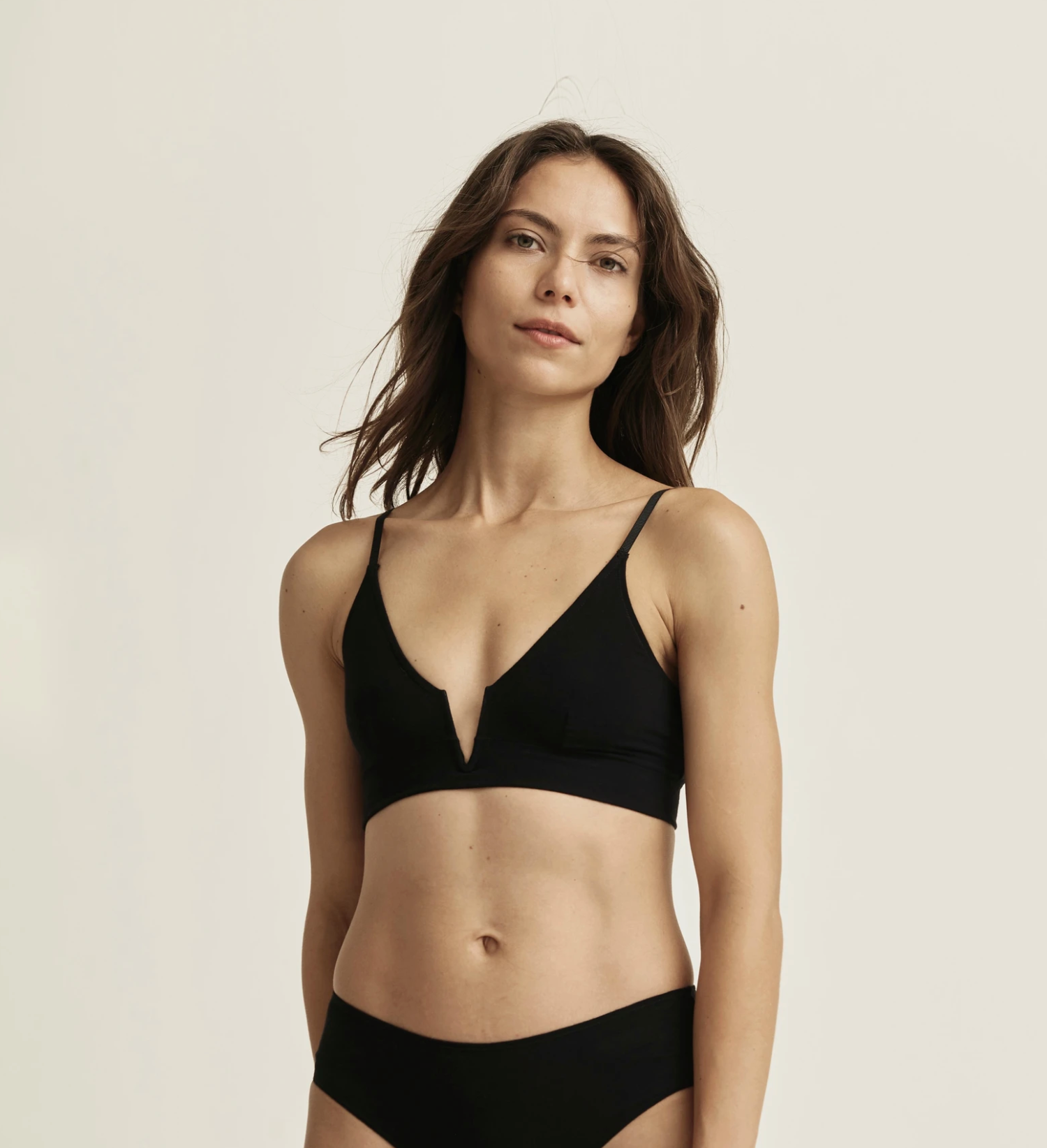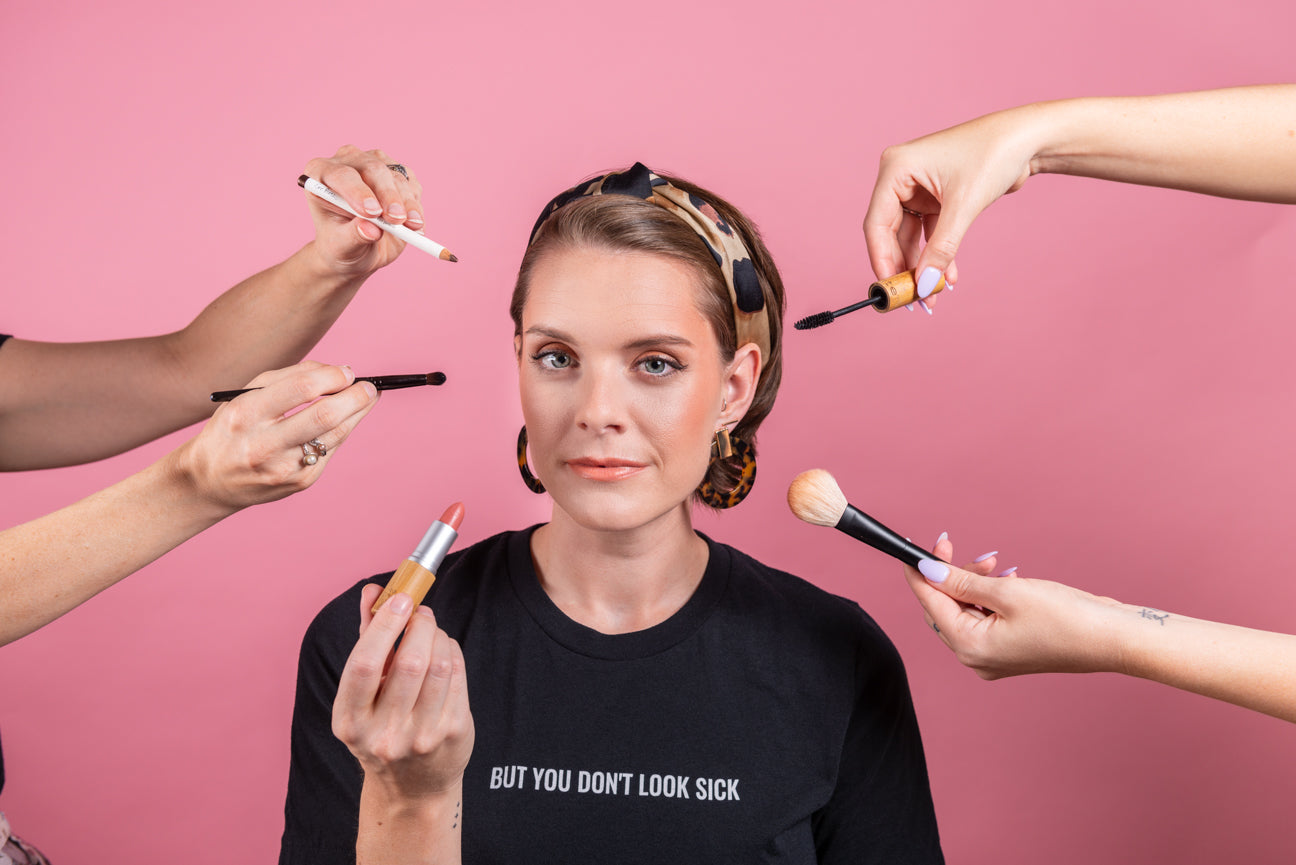
Vitamin A: The Miracle Skin Ingredient
Who would have thought that the first letter of the alphabet could cause so much confusion when it comes to skin care ingredients?
Vitamin A is a term for the many related compounds which are also known as retinoids. The vitamin A family is almost as extensive as a big Greek wedding. It includes retinol, retinal or retin-A, retinoids and naturally occurring vitamin A.
Vitamin A and its derivatives are one of the most misunderstood and controversial ingredients. It's implicated in liver toxicity, birth defects and cancer. On the flip side, vitamin A is touted as a miracle skin care ingredient that you shouldn't be without. Whilst vitamin A is essential to our health and well-being, too much of anything can cause issues.

WHAT MAKES VITAMIN A SO EFFECTIVE AS AN ANTI-AGEING INGREDIENT?
Vitamin A and its derivatives are known as the gold standard when it comes to incredible skin rejuvenating ingredients. They have more anti-ageing skin benefits than just about any other compound. Dependent on the strength and formulation, retinoids work through the mechanism of inhibiting the enzymes that break down collagen and increase cellular turnover, resulting in a softening of fine lines and wrinkles.
Vitamin A can also work to fight acne by dissolving surface oil and diminishing pores, as well as evening out the skin tone by fading dark spots and reducing pigmentation. In short, vitamin A in the correct dosage and formulation, can give you a rosy, glowing complexion.
BETA-CAROTENE OR PROVITAMIN A
Provitamins or natural precursors of vitamin A include alpha carotene, beta-carotene and beta-cryptoxanthin. They are a precursor to vitamin A, which means it converts to vitamin A in the body.
HOW IT WORKS
The retinoic acid slow-releases as the retinol in the formula is converted into retinoic acid within the skin. Beta-carotene is known to combat and prevent skin disorders like acne, eczema and psoriasis. It can protect against melasma by affecting the production of skin pigment. It’s a powerful antioxidant and can also protect against sun damage and assist with wound healing, as well as soothing dry and flaky skin.
RETINAL (RETINALDEHYDE)
Retinal or retinaldehyde is the aldehyde form of vitamin A and is purported to be the most effective for your skin. It’s the transitional form of A and is created in the conversion of retinol to retinoid or retinoic acid.
HOW IT WORKS
It can assist with minimising the appearance of fine lines and wrinkles. It’s less commonly used in skincare formulations, as this form can be irritating even at very low doses. It should be using sparingly and slowly introduced into your night time routine.
RETINYL PALMITATE AND RETINYL ACETATE
These are the most common ester forms of vitamin A. They work primarily as antioxidants and convert to retinol. They are more stable in light and are less irritating than retinol, but generally, not as effective. Your body stores around 80% retinyl palmitate as vitamin A found in your skin.
RETINOIC ACID OR TRETINOIN
Is a prescription-only synthetic derivative of vitamin A. It contains retinoic acid in its purest form.
HOW IT WORKS
When applied to the skin, the body can utilize the retinoic acid immediately without having to first metabolize vitamin A. For this reason, it’s classified as a drug. Studies have verified that repeated application of retinoic acid can inhibit collagen breakdown in the presence of UV exposure, reverse the effects of photo aging, stimulate blood vessels and inhibit precancerous skin cells. It can also reduce visible signs of aging, but the downside includes inflammation, burning, scaling and peeling that can last for a few weeks. Yikes!
This form of A is medical grade and used in a clinical situation as a peel. In higher doses, it's best executed under the guidance of a qualified esthetician or therapist. Take note, you will need some down time and you will need to avoid the sun for some time after this type of peel.
(A side note: I tried this type of peel in a professional setting around three years ago and my skin has never quite recovered. Whilst at first, it gave me a fresh, resurfaced canvas, longterm, I believe that this treatment was the catalyst for ongoing dermal impairment and even mild rosacea.)
RETINOL
Retinol is the alcohol form of vitamin A and is a gentler alternative to retinoic acid. It’s also the most useable form of A and absorbs easily. In its natural form, it’s found in egg yolks and fish liver oil. It’s formed in the body by the hydrolysis of retinyl esters.
HOW IT WORKS
Retinol is stored until it's required. When applied topically, it’s converted to retinoic acid that works to target free radicals, boost collagen levels and improve cell turnover. It triggers the protein glycosaminoglycan (GAG) production and is thought to stimulate the proliferation of elastin. It can assist with diminishing the signs of aging by increasing skin thickness, combating acne and reducing sun damage.
So what are the safe alternatives to Retinol?
HYDROXYPINACOLONE RETINOATE (HPR) - THE NEW GENERATION IN RETINOIDS

HPR is an ester of retinoic acid and works in a similar way to tretinoin (retin–A) minus the irritation profile. This is the form of active A found in the MUKTI Vital A Booster Elixir and Age Defiance Night Serum.
HOW IT WORKS
Unlike retinoic acid, results of the standard skin irritation test showed no irritation after 21 days of continual use and, since it’s not a drug, it can be incorporated into over the counter cosmetic products. Unlike retinol and other derivatives that must be converted to the biologically active form of retinoic acid, HPR binds directly with retinoid receptors initiating a cellular response. Comparatively, retinol and retinyl palmitate must first be converted to retinoic acid.
The Hydroxypinacolone Retinoate shows efficient diffusion through the stratum corneum comparable to prescription retinoic acid. It interacts with the retinoid receptors with no evidence of a hydrolysis or breakdown to Retinoic Acid which speaks to the retinoic activity of the molecule itself.
HPR is concentrated and is formulated into anhydrous matrix containing 10% of the pinacolyl ester of all trans retinoic acid in a premium delivery solvent dimethyl isosorbide (as opposed to glycols) which makes it one of the most bioavailable forms of non-prescriptive A. It has shown to be effective in decreasing the effects of UV induced skin damage and clearing acne related symptoms minus the irritation of other forms of A when used at high percentages.

BAKUCHIOL
The up-and-coming bakuchiol is a plant extract that’s said to have been used in Chinese and Indian restorative medicine for years. This powerhouse ingredient is found in the BLÜH ALCHEMY BOTANIC-RETINOL CELL RENEWAL CONCENTRATE.
It’s an antioxidant found in the seeds and leaves of the plant Psoralea Corylifolia. Studies have shown that bakuchiol helps prevent fine lines and wrinkles, and helps with pigmentation, elasticity, and firmness.
It works through the same receptors that retinol uses, which is why many refer to it as a natural retinol alternative. But what really gives bakuchiol its edge is, it’s a natural alternative, meaning not only is it not as irritating as retinol, but it’s a great option for those who shop vegan, clean, and in consideration of skin conditions like eczema, psoriasis, or dermatitis.
VITAMIN A AND PREGNANCY
If you’re pregnant (or planning to be) or breastfeeding then it’s recommended to avoid using vitamin A, as it can be absorbed through the skin. High doses of vitamin A have been found to cause birth defects in animals so best to err on the side of caution.
If you have any questions about Vitamin A or Retinol alternatives feel free to email us at info@parislaundry.com and we would be happy to help you find the serum that is best for you and tell you how to incorporate it into your skincare routine.


